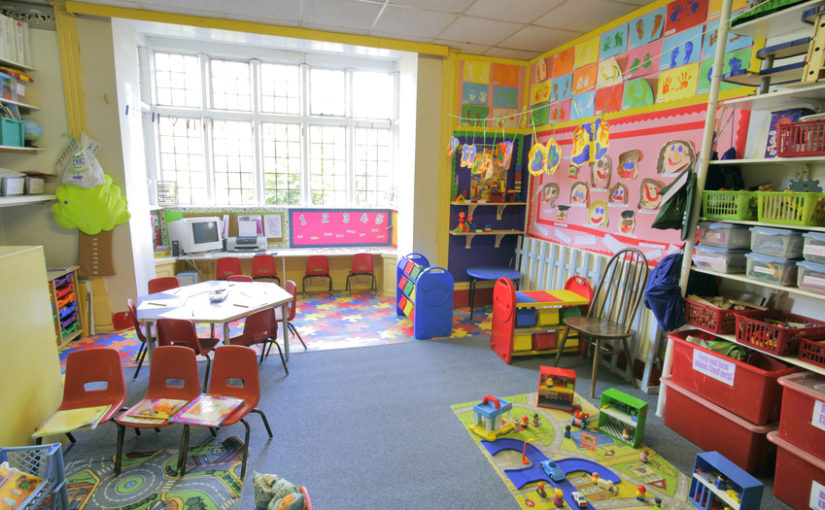Comprehending the Relevance of Daycare for Your Toddler's Social Growth and Understanding Knowledge With Engaging Tasks
The importance of day care fit a toddler's social development and discovering can not be overstated, as it supplies an organized atmosphere loaded with interesting tasks that are critical for very early growth. These experiences not only enhance social interaction however additionally act as a vital system for developing interaction abilities, psychological guideline, and resilience. Understanding just how these components interconnect can give insight right into cultivating independence and confidence in young youngsters. As we explore the complex benefits of daycare, one have to think about how these fundamental experiences influence a youngster's future social interactions and general development.

Advantages of Social Communication
Social interaction plays a crucial duty in the developing trajectory of toddlers, functioning as a foundation for important social abilities. Engaging with peers allows kids to exercise interaction, discover to express their emotions, and create compassion. Via shared play and collaboration, they start to recognize social norms, such as taking turns and sharing, which are essential parts of effective social connections.
In addition, social communications add to cognitive growth. As young children interact with their peers, they boost their language skills, expand their vocabulary, and improve their capacity to articulate sensations and thoughts. This exchange of ideas promotes vital thinking, as children learn to bargain, solve troubles, and navigate disputes.
In addition, social interaction promotes emotional policy. Exposure to various social situations helps kids identify and manage their emotions, inevitably leading to better strength and versatility. The capacity to develop friendships and add-ons likewise enhances their feeling of belonging and self-worth, which are important for overall health.
Relevance of Engaging Tasks
Engaging activities are important for fostering a stimulating atmosphere that boosts toddlers' social development. These tasks not just astound kids's focus yet likewise advertise active participation, enabling them to explore their environments artistically. Via play-based understanding, toddlers develop vital abilities such as problem-solving, teamwork, and compassion, all of which are critical for developing healthy partnerships with peers.
Participating in engaging tasks, such as group games, art projects, and interactive storytelling, motivates young children to express their sensations and concepts. This expression is vital for psychological intelligence and aids them understand the perspectives of others. Additionally, when young children take part in these tasks together, they discover to discuss duties, share sources, and collaborate, which are fundamental facets of social interaction.
Furthermore, a well-structured atmosphere that includes revitalizing and diverse tasks aids in keeping kids motivated and focused. This motivation promotes a love for discovering and exploration, laying the structure for future educational experiences. Ultimately, engaging tasks in day care setups are pivotal fit social skills, preparing young children for successful communications past the classroom, and supporting their overall development during these formative years.
Developing Communication Skills
Efficient communication skills are crucial for toddlers as they browse their early social interactions. In a daycare setting, kids are subjected to diverse social situations that urge non-verbal and verbal interaction. Talking with caregivers and peers promotes language development, allowing toddlers to share their feelings, requirements, and thoughts better.

Additionally, daycare atmospheres supply opportunities for young children to observe and resemble communication styles of their grownups and peers. This observational knowing is important her response as kids notice social cues, tone, and body language, which are necessary elements of reliable interaction.
Promoting Self-reliance and Confidence
As toddlers improve their interaction abilities, they concurrently begin to explore their freedom and construct confidence in social setups (daycare near me for infants). Day care supplies an organized atmosphere where children can take part in various activities that encourage autonomy. From picking their own tasks to getting involved in team tasks, these experiences encourage kids to choose and share themselves
In a day care setting, kids are often offered with possibilities to solve problems individually, whether it's figuring out how to share playthings or dealing with problems with peers. This promotes vital reasoning and promotes self-direction. In addition, caregivers support this development by supplying positive reinforcement and support, helping kids to navigate social communications with self-confidence.

Group tasks, such as participating video games or collective art tasks, help with team effort and teach young children the importance of working together. With these communications, youngsters discover to communicate their thoughts and sensations, further boosting their self-esteem and social skills.
Eventually, cultivating self-reliance and self-confidence in childcare not only prepares kids for future social settings yet additionally lays the foundation for a resilient way of thinking, outfitting them with essential life abilities as they continue to expand and learn.
Structure Lifelong Discovering Foundations
A strong foundation for long-lasting learning is vital for kids, as their early experiences shape their perspectives in the direction of education and learning and interest. Childcare environments play an essential role in this developing stage by giving structured opportunities for expedition and engagement. Involving activities, such as team play, arts and crafts, and interactive storytelling, stimulate cognitive growth while encouraging social interaction.
Through these experiences, toddlers learn essential abilities such as problem-solving, interaction, and participation. They are introduced to the idea of learning as a delightful, collaborative procedure rather than a job, which fosters a positive attitude towards education and learning. Exposure to varied point of views and peer communications in childcare settings enhances psychological intelligence, advertising empathy and strength.
Caregivers and educators also add significantly to constructing this structure by modeling curiosity and enthusiasm for knowing. By encouraging questions and facilitating discussions, they create an atmosphere where kids feel risk-free to reveal themselves and explore originalities. Inevitably, the mix of helpful relationships and interesting activities in childcare settings lays the groundwork for a long-lasting love of knowing, gearing up kids with the abilities and frame of mind required for future scholastic and individual success.
Final Thought

The significance of childcare in forming a young child's social development and learning Read More Here can not be overemphasized, as it offers an organized atmosphere loaded with engaging tasks that are essential for very early browse around this web-site development.Social interaction plays an essential duty in the developmental trajectory of kids, offering as a foundation for crucial social skills. When young children engage in these tasks with each other, they find out to work out roles, share sources, and team up, which are basic aspects of social communication.
Inevitably, engaging tasks in childcare setups are critical in shaping social abilities, preparing toddlers for effective communications beyond the classroom, and nurturing their total growth throughout these formative years.
Eventually, the benefits of engaging activities in daycare settings play a considerable duty in preparing kids for future social communications and difficulties. daycare near me for infants.